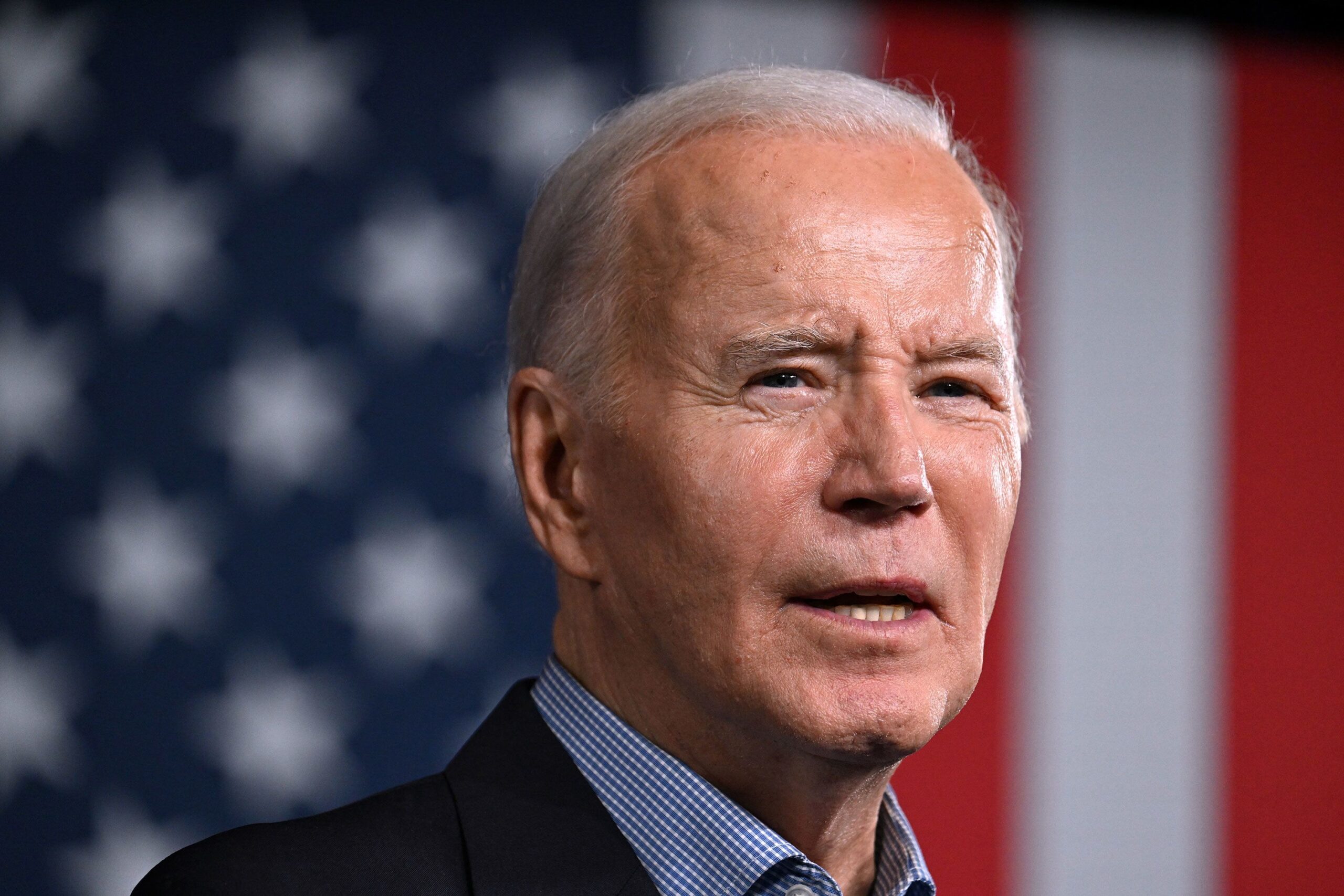President Joe Biden is set to intensify his criticism of the Republican party and former President Donald Trump on Monday, focusing on the contentious issue of health care. During a visit to New Hampshire, a state with one of the highest proportions of elderly residents in the country, Biden will present a health care plan that starkly contrasts with the Republicans’ pledge to repeal the Affordable Care Act and remove caps on out-of-pocket drug costs.
Despite the fact that health care is a powerful issue for voters, Biden’s team believes it is often overlooked. Democrats have effectively used the issue in recent elections, and the popularity of the Affordable Care Act, also known as Obamacare, has provided a platform for Biden to campaign alongside his former boss, Barack Obama. However, polls suggest that many Americans are unaware of the measures Biden has implemented since his inauguration to reduce health care costs.
On Monday, Biden will urge Congress to pass new laws to extend the cap on out-of-pocket drug costs, allow Medicare to negotiate drug prices, and extend Obamacare premium subsidies. However, the GOP-controlled House is unlikely to consider these proposals before the November elections. This makes Biden’s visit to New Hampshire a prime opportunity to highlight the differences between his administration and the Republicans.
Biden won New Hampshire by a 7-point margin in 2020, but polls suggest a closer race this year. This is Biden’s first visit to the state since its primary contest in January, which he won despite not being on the ballot. In a state where one in five residents is over 65, the issues of lowering health care costs and expanding access to care are of paramount importance.
Biden is expected to continue the line of attack he initiated during his State of the Union address last week. He referred to the 14-year-old Obamacare as “still a very big deal” and pledged to resist Republican attempts to repeal it. “I’m not going to let that happen. We stopped you 50 times before, and we’ll stop you again,” Biden declared.
Trump, on the other hand, has urged Republicans to “never give up” on their efforts to repeal the landmark Obama-era health reform law. The Biden campaign has seized on these comments, accusing Trump of harboring a “vendetta” against the law due to his personal animosity towards Obama.
For Democrats, the ability to campaign in defense of the Affordable Care Act represents a significant turnaround from a decade ago when GOP presidential and congressional candidates successfully campaigned against the legislation. As more Americans sign up for coverage through the law’s exchanges, it has become increasingly integrated into the nation’s health care system.
According to a recent poll by KFF, formerly the Kaiser Family Foundation, 59% of Americans had a favorable view of the law as of February. Another KFF poll from December found that Democratic voters were more than twice as likely as their GOP counterparts to say that the future of the health reform law is a “very important” issue for the 2024 presidential candidates to discuss.
Over the past three years, Biden has made consistent efforts to reduce drug costs. One of his most frequently touted achievements is capping the out-of-pocket cost of insulin at $35 a month for Medicare enrollees. He has pledged to extend this cap to all Americans if reelected.
In his State of the Union address, Biden criticized not only Republicans for opposing his drug pricing efforts but also pharmaceutical companies, referring to “Big Pharma” three times in his speech. This was an attempt to publicize the 2022 measure that allowed Medicare to negotiate drug prices for the first time.
However, polls show that public awareness of Biden’s drug price initiatives is low. Most Americans are not aware of the prescription drug provisions in the 2022 Inflation Reduction Act, even though Biden has repeatedly highlighted these measures as evidence of his commitment to lowering drug prices.
The administration and drug manufacturers are currently negotiating prices for 10 costly drugs, including those that treat heart disease, certain cancers, and diabetes. The negotiated prices will be announced by September 1 and will take effect in 2026. Drugmakers and industry groups have filed lawsuits in federal courts across the US in an attempt to halt the initiative, arguing that the program is unconstitutional.
Despite Biden’s efforts to draw attention to the benefit, only about a quarter of those surveyed by KFF were aware of the federal law that caps the cost of insulin for Medicare enrollees, which took effect in 2023. Another provision of the Inflation Reduction Act places an annual cap on out-of-pocket costs in Medicare Part D drug plans. Enrollees will spend no more than about $3,300 for brand name drugs this year. A $2,000 annual cap on out-of-pocket drug spending will be implemented in 2025.
According to KFF’s poll, fewer than a quarter of adults knew about the federal law that limits out-of-pocket drug costs for Medicare beneficiaries.

